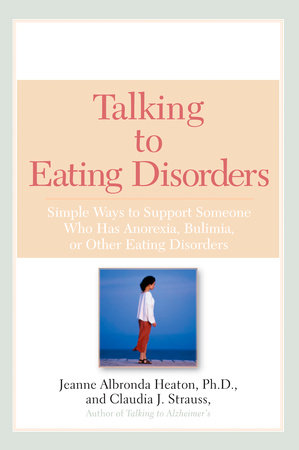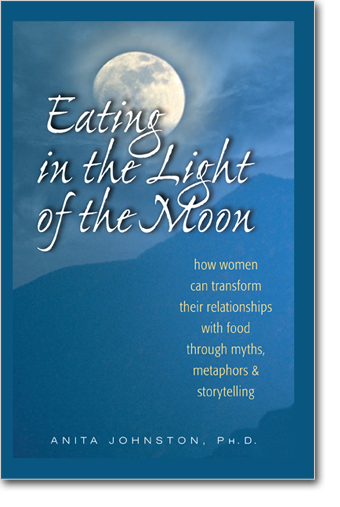A new program aims to help the most long-suffering patients by addressing the neurobiology of the eating disorder.
YOU MIGHT ALSO LIKE
CLEAR ALL
BY TOPIC
BY TEACHER
BY TYPE
FILTER

TOPIC
- Illness and Injury (26)
- Chronic Anxiety (25)
- Emotional and Mental Health (24)
- Athlete Well-Being (23)
- OCD (22)
- Stress (16)
- Neuroplasticity (15)
- Brain Health (14)
- Cognitive Behavioral Therapy (14)
- Panic Attacks (14)
- Cancer (12)
- Fear (12)
- Meditation (12)
- Mind-Body Connection (12)
- Living with Illness (11)
- Trauma (11)
- Mindfulness (10)
- Self-Healing (10)
- Stress Management (10)
- Autoimmune Disease (9)
- Binge Eating (9)
- Neurodiversity (9)
- Obsessions/Compulsions (9)
- Science and Spirituality (9)
- Honoring Emotion (8)
- Resilience (8)
- Self-Care (8)
- Social Anxiety (8)
- Well-Being (8)
- Autism (7)
- Bulimia (7)
- Child’s Trauma (7)
- Chronic Health Conditions (7)
- Dementia (7)
- Habit Formation (7)
- Mindfulness Meditation (7)
- Mindfulness Practices (7)
- Romantic Relationships (7)
- Altered States (6)
- Buddhism (6)
- Cognition (6)
- Decision Making (6)
- Habits of Mind (6)
- Happiness (6)
- Joy (6)
- Memory (6)
- Negative Self-Talk (6)
- Parenting (6)
- Polyvagal Theory (6)
- Presence (6)
- Psychedelic Research (6)
- Self-Reflection Practices (6)
- Addiction (5)
- Addiction Recovery (5)
- Breathwork (5)
- Consciousness (5)
- Emotional Intelligence (EQ) (5)
- Grief (5)
- Handling a Loved One’s Illness (5)
- Imagination and Creativity (5)
- Physical Health (5)
- PTSD (5)
- Self-Discovery (5)
- Shame (5)
- Social Media Addiction (5)
- Trauma Healing (5)
- Willpower (5)
- Acceptance (4)
- Anger (4)
- Body Image (4)
- Chronic Pain (4)
- Diet and Nutrition (4)
- Digital Life (4)
- Endurance (4)
- Finding Meaning (4)
- Hope (4)
- Intimacy (4)
- Mental Health Challenges (4)
- Neuropsychology (4)
- Performance Anxiety (4)
- Psilocybin (4)
- Psychology (4)
- Religious Experience (4)
- Self-Acceptance (4)
- Sex (4)
- The Feldenkrais Method (4)
- ADD/ADHD (3)
- Child’s Emotional Growth (3)
- Compassion (3)
- Confidence (3)
- Connection (3)
- Dysfunctional Childhood (3)
- Empathy (3)
- Family Therapy (3)
- Inner Peace (3)
- Kindness (3)
- Relationship Challenges (3)
- Self-Compassion (3)
- Self-Control (3)
- Self-Mastery (3)
- Suffering (3)
- Tibetan Buddhism (3)
- Transcendent Experience (3)
- Weight Concerns (3)
- Women’s Well-Being (3)
- Yoga (3)
- Affirmations (2)
- Aging (2)
- Art Therapy (2)
- Astral Projection (2)
- Awareness (2)
- BIPOC Well-Being (2)
- Cannabis/CBD (2)
- Caregiver Well-Being (2)
- Challenges with Teens (2)
- Child’s Anxiety (2)
- Child’s Autism (2)
- Chronic Fatigue (2)
- Clinical Depression (2)
- Communication Skills (2)
- Creative Well-Being (2)
- Divorce and Breakup (2)
- Embodiment (2)
- Entrepreneurship (2)
- Generosity (2)
- Growth Mindset (2)
- Guided Meditation (2)
- Guilt (2)
- Human Potential (2)
- Identity (2)
- Inner Life (2)
- Insomnia (2)
- Integrative Medicine (2)
- Journaling (2)
- Letting Go (2)
- Loneliness (2)
- Love (2)
- LSD (2)
- Marriage (2)
- Men’s Well-Being (2)
- Motherhood (2)
- Offering Support to Others (2)
- Perception (2)
- Personal Development (2)
- Play (2)
- Psychedelic-Assisted Therapy (2)
- Rest (2)
- Self-Esteem (2)
- Self-Limiting Beliefs (2)
- Self-Love (2)
- Self-Pressure (2)
- Sexual Health (2)
- Sexuality (2)
- Sleep Disorders (2)
- Synesthesia (2)
- The Yips (2)
- Transformation (2)
- Visions and Hallucinations (2)
- Young Adult Well-Being (2)
- Acupressure (1)
- Alcohol Addiction (1)
- Aromatherapy (1)
- Asking for Help (1)
- Attachment Theory (1)
- Belonging (1)
- Biofeedback (1)
- Biohacking (1)
- Black Well-Being (1)
- Body Scan Meditation (1)
- Changes in Libido (1)
- Child’s Challenging Behavior (1)
- Children’s Well-Being (1)
- Cognitive Psychology (1)
- Collective Trauma (1)
- Courage (1)
- Criticism and Rejection (1)
- Death or Loss of a Child (1)
- Disconnection (1)
- Dreamwork (1)
- Drug Addiction (1)
- Ego (1)
- Energy Healing (1)
- Epigenetics (1)
- Exercise (1)
- Existentialism (1)
- Family Dynamics (1)
- Fatigue (1)
- Fellowship and Community (1)
- Foster Parenting (1)
- Freedom (1)
- Friendship (1)
- Gender Identity (1)
- Global Challenges (1)
- Global Food Supply (1)
- Goal Setting (1)
- Grace (1)
- Healing Approaches (1)
- Healthy Eating (1)
- Heartmath (1)
- Highly Sensitive People (1)
- Holism (1)
- Identity Shifts (1)
- Infidelity (1)
- Inflammation (1)
- Inner Strengths (1)
- Intention (1)
- Ketamine (1)
- Kids and Sports (1)
- Learning Styles (1)
- Life Challenges (1)
- Loss of Appetite (1)
- MDMA (1)
- Memoir (1)
- Midlife Crisis (1)
- Nightmares (1)
- Oneness (1)
- Past Lives and Reincarnation (1)
- Patience (1)
- Peak Performance (1)
- Plant-Based Medicine (1)
- Positive Self-Talk (1)
- Postpartum Depression (1)
- Problem Solving (1)
- Psychological Approaches (1)
- Race and Gender (1)
- Racial Healing (1)
- Racism (1)
- Relationship with Money (1)
- Relationship with Time (1)
- Rolfing (1)
- Search for Purpose (1)
- Self-Actualization (1)
- Self-Development (1)
- Self-Employment (1)
- Self-Realization (1)
- Self-Reliance (1)
- Self-Worth (1)
- Setting Limits and Boundaries (1)
- Sleep (1)
- Somatic Experiencing (1)
- Spiritual Awakening (1)
- Spiritual Crisis (1)
- Spiritual Development (1)
- Spiritual Direction (1)
- Spiritual Healing (1)
- Spiritual Practices (1)
- Subconscious (1)
- Superfoods (1)
- Tapping/EFT (1)
- Telepathy (1)
- The Unconscious (1)
- Time Management (1)
- Trauma-Informed Therapy (1)
- Unfulfilled Career (1)
- Vulnerability (1)
- Walking Meditation (1)
- Wholeness (1)
- Work Challenges (1)
- Zen Meditation (1)
FILTER

TEACHER
- Eckhart Tolle (4)
- Lisa Feldman Barrett (4)
- Richard Davidson (4)
- Annie Hopper (3)
- Gabor Maté (3)
- Judson Brewer (3)
- Robin Carhart-Harris (3)
- Daniel Amen (2)
- David Perlmutter (2)
- Edward Hallowell (2)
- Joel Fuhrman (2)
- Jon Kabat-Zinn (2)
- Martin Seligman (2)
- Monnica Williams (2)
- Oliver Sacks (2)
- Oprah Winfrey (2)
- Russell Brand (2)
- The Dalai Lama (2)
- Adriene Mishler (1)
- Anat Baniel (1)
- Andy Puddicombe (1)
- Anna Lembke (1)
- Brendon Burchard (1)
- Brené Brown (1)
- Byron Katie (1)
- C. Norm Shealy (1)
- Dacher Keltner (1)
- Daniel Goleman (1)
- David Eagleman (1)
- David Spiegel (1)
- Dilip Jeste (1)
- Eileen Fisher (1)
- Erin Clabough (1)
- Glennon Doyle (1)
- Harriet Lerner (1)
- Howard Gardner (1)
- Jean Shinoda Bolen (1)
- Jeff Foster (1)
- Jeffrey Mishlove (1)
- Joe Dispenza (1)
- Josh Axe (1)
- Karla McLaren (1)
- Kenneth Pelletier (1)
- Lauren Walker (1)
- Lisa Wimberger (1)
- Lissa Rankin (1)
- Lodro Rinzler (1)
- Maria Nemeth (1)
- Matthieu Ricard (1)
- Mel Robbins (1)
- Michio Kaku (1)
- Nadia Bolz-Weber (1)
- Nedra Glover Tawwab (1)
- Neil Pasricha (1)
- Nikki Mirghafori (1)
- Noah Elkrief (1)
- Pema Chödrön (1)
- Peter A. Levine (1)
- Renee Baribeau (1)
- Richard Saul Wurman (1)
- Roland Griffiths (1)
- Ruby Wax (1)
- Sanjay Gupta (1)
- Sister Jenna (1)
- Stan Tatkin (1)
- Stephan Bodian (1)
- Thich Nhat Hanh (1)
- Thomas Moore (1)
- Yongey Mingyur Rinpoche (1)
- Zindel Segal (1)









